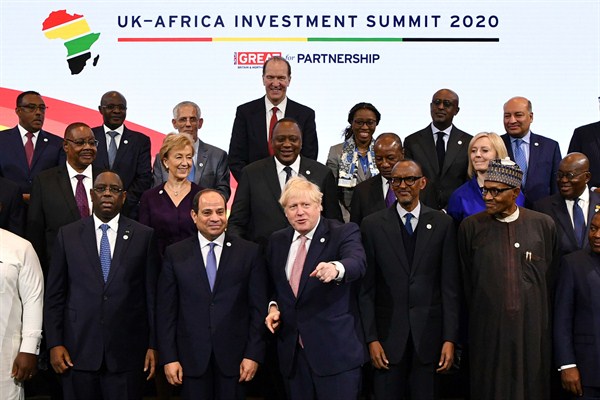The United Kingdom may have officially left the European Union, but the terms of its exit are still being worked out, including what British trade policy will look like post-Brexit. During the current transition, which lasts until at least the end of the year, the U.K. will continue trading under EU rules while negotiating new arrangements with Brussels. Once that is done, the British government will be free to negotiate new trade terms with the rest of the world. While a potential free trade deal with the U.S. gets all the attention, development advocates are watching to see how the U.K. adapts the existing preferential trade arrangements it had made as part of the EU with poor and developing countries, in Africa in particular.
The EU has a robust trade preference program, called Everything But Arms, that provides duty-free, quota-free market access for the world’s poorest countries, and the U.K. has already said that it will replicate it. But British policymakers have a chance to improve on the EU’s contorted and at times counterproductive approach to trade and development policy in Africa. In a recent speech celebrating Brexit, Prime Minister Boris Johnson reiterated the British government’s support for African leaders’ ambition “to turn that great family of nations into a free trade zone.” Though Brussels also backs the aim of a continent-wide African free trade zone, it has negotiated a hodge-podge of bilateral and regional trade agreements that actually make realizing that goal more complicated.
The EU ended up with its current trade policy in Africa, in part, because it ran afoul of multilateral trade rules that constrain discriminatory trade practices. The World Trade Organization’s Enabling Clause provides an exception that allows more economically advanced WTO members to provide “better than normal” tariff treatment to developing countries to promote their exports and overall economic growth. U.N.-designated “least-developed countries,” which are considered particularly vulnerable and in need of additional assistance, are eligible for even more expansive preferential treatment.

